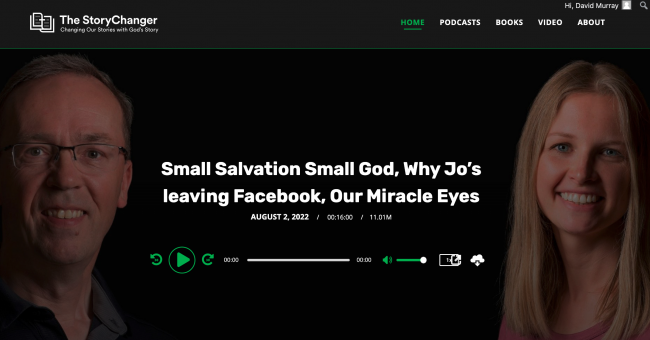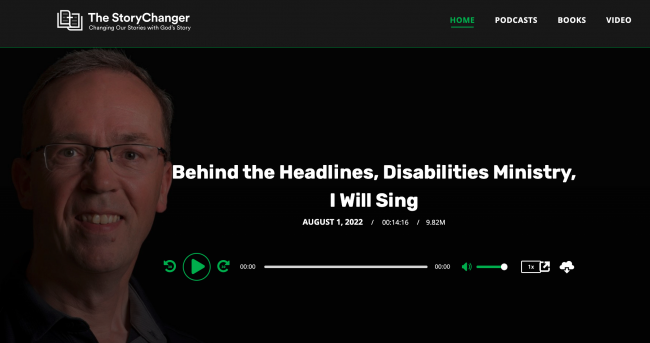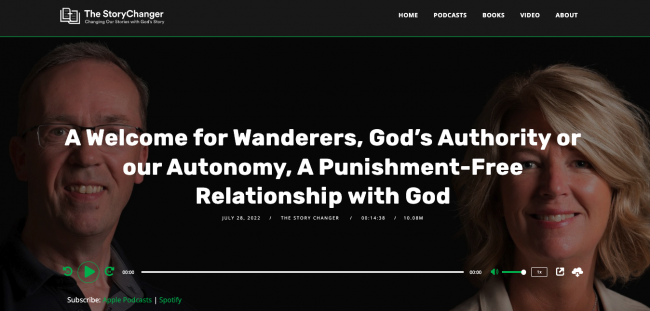
INTRODUCTION
How many people doubt that their father is their father? It’s very rare, isn’t it? How many Christians doubt that God the Father is their heavenly Father? That’s much more common, isn’t it? It’s more common for a number of reasons:
- How can I be God’s child when I sin so much?
- How can I be God’s child when I’m suffering so much?
- How can I be God’s child when I don’t feel like God’s child?
- How can I be God’s child when I don’t deserve to be God’s child?
This spiritual problem is often called a lack of assurance and it has some serious spiritual consequences. It hinders outward actions such as prayer, worship, witness, service. It hinders inner experiences such as joy, hope, and love.
How can I know that God is my Father? How can I get more assurance of being a child of God? Let’s look at Romans 8:15 for some answers.

BACKGROUND
God’s Fatherhood brings many desirable blessings into our lives.
- Designer for creatures
- Love for the loveless
- Compassion for the hurting
- Provision for the poor
- Chastisement for the disobedient
- Assurance for doubters
Romans 8 gives us three ways the Holy Spirit increases our assurance: the Spirit’s leading (8:14), the Spirit of adoption (8:15), and the Spirit’s witness (8:16). It’s the second of these we want to explore today.
How can I get more assurance?
1. THE SPIRIT OF SLAVERY MAKES US AFRAID

We were slaves
“For you did not receive the spirit of slavery to fall back into fear” (4).
“God is my slavemaster.” That’s what most unbelievers think of God. They see themselves as free and any relationship with God as enslavement. Understandably, then, they do not want any relationship with God because to be a slave is to be a prisoner of someone else’s will against our will. It’s the worst condition to be in as a human being. It’s degrading, demoralizing, and dehumanizing. A more powerful person orders you around to do your will without any regard for you or your well-being
“Sin is my slavemaster.” That’s what we say when the Holy Spirit begins to open our eyes to our true spiritual condition (John 16:8). We realize that we are not free as we thought, but rather captives of the devil doing his will (Rom. 6:6). Our wills are not free but imprisoned by a greater and evil power. It’s degrading, demoralizing, and dehumanizing.
We were afraid
“For you did not receive the spirit of slavery to fall back into fear” (4).
When we view God as a slavemaster, like slaves, we live in a state of fear. We try to avoid him, we’re terrified of him finding out about our failures and punishing us. We try to be free and fearless but in reality we are imprisoned and petrified.
Then when the Holy Spirit begins to open our eyes, we see that we are in a far worse state than we thought. Rather than being free we realize we are actually in bondage to a terrible master. We realize we don’t have as much power as we thought but rather are under the power and sway of our lusts and the Devil who uses them to enslave us to himself.
CHANGING OUR STORIES WITH GOD’S STORY
You are not free. No matter how much you proclaim your freedom from God or fight for freedom from God, you cannot get truly free can you? You know he is your inescapable Judge. No matter how much you insist that sin is freedom, you know it’s shackling you and mastering you, don’t you? Ask God to show you that you are not free, that your freedom is false, and that you have the worst possible master.
You are afraid. You try to put a brave face on it, but in your quiet moments, you’re scared. You know you are misrepresenting God and that by choosing sin as your master you’ve chosen a tyrant. The Christian can fall back into this kind of fear if they fall into serious sin and start seeing God more as a Judge than a Father.
GOD’S CHILDREN CAN
ACT LIKE SCARED SLAVES
What’s the alternative to slavery and fear?
Adoption and assurance.
2. THE SPIRIT OF SONSHIP MAKES US ASSURED

“…you have received the Spirit of adoption as sons, by whom we cry, “Abba! Father!” ” (15).
The Spirit of Sonship
The Spirit leads us from God as Judge to Christ as Savior, and then back to God as Father. He takes slaves and through Christ turns them into sons. When someone becomes a Christian, they are given two confessions by the Holy Spirit: “Jesus is Lord” (1 Cor. 12:3) and “God is my Father” (Rom. 8:15). We don’t just move from slave to free, but slave to son.
This is the highest privilege of the Gospel. As J I Packer said, “In adoption, God takes us into his family and fellowship—he establishes us as his children and heirs. Closeness, affection and generosity are at the heart of the relationship. To be right with God the Judge is a great thing, but to be loved and cared for by God the Father is greater.”
It’s one thing to have a certificate or legal document of adoption, it’s another to feel adopted. The Holy Spirit reveals, applies, witnesses, and ratifies the blessing of sonship, just as he did with Christ on earth (Mk. 1:11). The Spirit brings us into Christ’s experience of sonship which is not just the Father’s delighting in us, but also our delighting in and depending upon our Father.
The Spirit of Freedom
If slavery means fear, sonship means freedom. Freedom from terror, torment, uncertainty, distrust, and silence. Freedom of spontaneity, warmth, confidence, exuberance, and intimacy. Jesus used “Abba” often when addressing his heavenly Father. It’s not casual familiarity or sentimental chumminess but an affectionate respectful confidence as opposed to the cold resentful fear of slaves.
“Cry” means an earnest, fervent, intense, exuberant, desperate address. It’s the kind of cry heard when a child is bullied, ill, injured, blessed, or in danger. Sometimes all we can do is cry “My Father….My Father.” This cry is a gift of God given to his children and to those who ask for it (Lk. 11:13).
CHANGING OUR STORIES WITH GOD’S STORY
See how much you are loved. It takes a ton of commitment to adopt a child, overcoming many obstacles and costs. It’s a deliberate act, not an accident (Eph. 1:5). He wanted to adopt you and wants you to know you are his child.
Feel free to cry “Abba” like Jesus. When we become confident about who our Father is, we become confident about who we are. Jesus shows us the Father that we can know like he did.
GOD’S ADOPTION IS OUT OF LOVE,
BY LOVE, AND FOR LOVE
SUMMARY


THE NEXT CHAPTER
Gospel Adoption. This is an invitation, even an appeal, to all scared slaves to come to God for assured adoption into his family.
Constant Adoption. It doesn’t matter how much you’ve sinned, how much you are suffering, what you feel, or what you deserve, every Christian is fully and forever adopted.
Practical Adoption. More sonship means more service, prayer, and witness. More sonship means more joy, hope, and love
Prayer. My loving heavenly Father, thank you for your full adoption of me into your family. Give me your Spirit of adoption so that I can cry to you as a confident child.
DISCUSSION QUESTIONS
1. On a scale of 1-10, how confident are you that you are one of God’s children?
2. How did you come to know that you are one of God’s children?
3. What makes you revert back to a scared slave at times?
4. What evidence is there in your life that you live more like an adopted child than a slave?
5. How can you strengthen the Spirit of adoption and freedom in your life?
6. How will this sermon change the way you present the Gospel to unbelievers?
PDF OF SERMON NOTES














